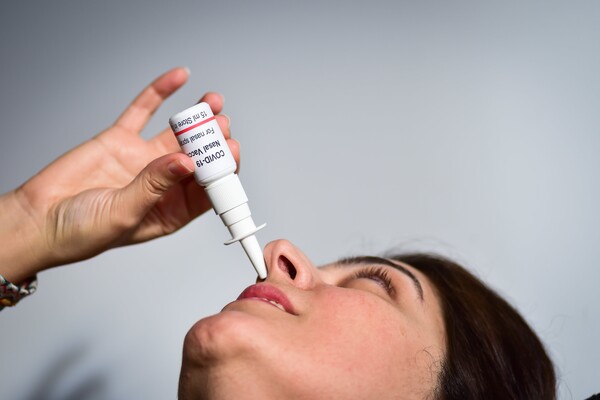The Korea Advanced Institute of Science and Technology (KAIST) said on Thursday that its adenovirus nasal Covid-19 vaccine confirmed strong mucosal immunity and that lung macrophages helped produce a sustained response in mouse models.

Mucosal immunity protects the body from infection by recognizing and removing pathogens that invade the mucous membrane. As the mucous membrane is the main pathway for pathogens and foreign antigens to invade, mucosal immunity can offer a faster immune response to pathogen invasion compared to systemic immunity.
Currently, available intramuscular vaccines are unable to induce sufficient mucosal immunity to inhibit the spread of the virus, so there is still a need for a vaccine that can induce strong mucosal immunity for a long period, reasoned the researchers.
The study led by Dr. Jung Hi-eun, a postdoctoral researcher at KAIST's Graduate School of Medical Science and Engineering, developed a nasally administered adenovirus Covid-19 vaccine (Ad5-S.Mod) with a modified spike protein antigen. In particular, they used a genetic adjuvant human, CXCL9, to attract activated T cells to a specific location to increase the vaccine's efficacy.
The results showed that the nasal vaccine was able to induce high levels of antibody and memory T-cell responses in the respiratory mucosa, with 100 percent survival of the vaccine group against the novel coronavirus infection after a single dose.
Also, the immune response generated by the vaccine was maintained for at least one year.
Furthermore, the team revealed that lung macrophages in vaccinated mice are largely responsible for maintaining memory T and B cells in the lungs using transcriptional analysis.
“This study provides a new strategy for enhancing vaccine efficacy with the CXCL9 adjuvant and identifies a novel role for lung macrophages in maintaining the memory response of mucosal vaccines, as a new target for the development of future nasal vaccines,” emphasized the researchers.
The study was published on June 14 in the online edition of Antiviral Research.

